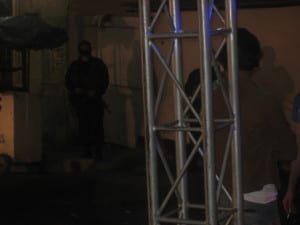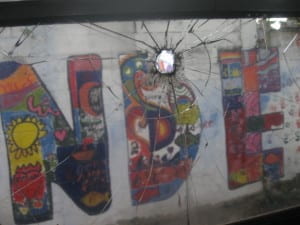Akiera Xavina Charles
Groundation Grenada
St. George’s, Grenada
Greetings! My name is Akiera Xavina Charles, and I am a rising senior at Gallatin concentrating in “Understanding How Visionary Futurism and Spatial Geography Shapes the Afro-diasporic Imaginary.” As an Afro-Caribbean, mango-loving queer woman and creative writer, I take seriously the theory and practice of imagining alternative futures that promote modes of sustainability and communal love and that call on destroying capitalism, white supremacy, and all other “isms.”
Currently, I live my life as an oftentimes-misunderstood Black radical millennial. I have gotten used to some folks categorizing me as insane or mystical given my beliefs and bi-sexuality. I often have to explain myself and explain why I seek futures outside the framework of whiteness and Western linear time.
However, slowly and surely, I am learning how to love myself amidst a world that has had difficulty knowing how to love me. I have learned to trust in my pedagogy of queer Black feminist theory, which enables me to see beyond the future that has been prescribed for us. But it is a radical feat for people of color to imagine that something other than whiteness, capitalism, and colonialism awaits us; this smells of danger, anti-patriotism, and anachronism. As a result, it has been difficult for me to find community around my academic and personal interests.
And then, I found it . . .
Or it found me . . . others who felt the same, desired the same, envisioned the same: my/our/their queer Grenada!
One day searching online, I came across the Grenadian human rights organization, Groundation Grenada. Their website openly discusses LBGTQ issues, beautifully yelling to the rest of the world that same-loving women and LGBTQ folks in Grenada exist and that our lives matter. I felt immediately in love with this organization once I realized it shares my knack for in-your-face radical advocacy and that it has a radical anti-colonialist Caribbean feminist perspective. I am still in awe of gaining the chance to intern there this summer.
In the meantime, as I mentally prepare myself for my sojourn home, revising my workshop lesson plans and interview questions, I still do not know what to expect. I was born in Grenada but am now a college-educated US citizen; I grapple with my unfamiliarity with Grenada and the many privileges I have. I am also bothered by the silence that exists around Grenadian queer or erotic sexuality; I wonder whether some of the women I plan to work with this summer will feel open and comfortable enough to share their stories and dreams with me.
Though I want to learn more about the cultural history of queer and same-loving women in Grenada, I do acknowledge that I approach this research without a heavy awareness of their experiences and of the silence that marks their lives. Yet, since my project serves as a queer memory project for Grenadian women, girls, and femmes, I intend for it to challenge that silence. And considering that some people tried to discourage me by saying that “that queer stuff ain’t real down in your tropical Bible-loving oasis,” this project is a loud and in-your-face testament to the importance of creating space for “silenced” identities while engaging in social justice work.




